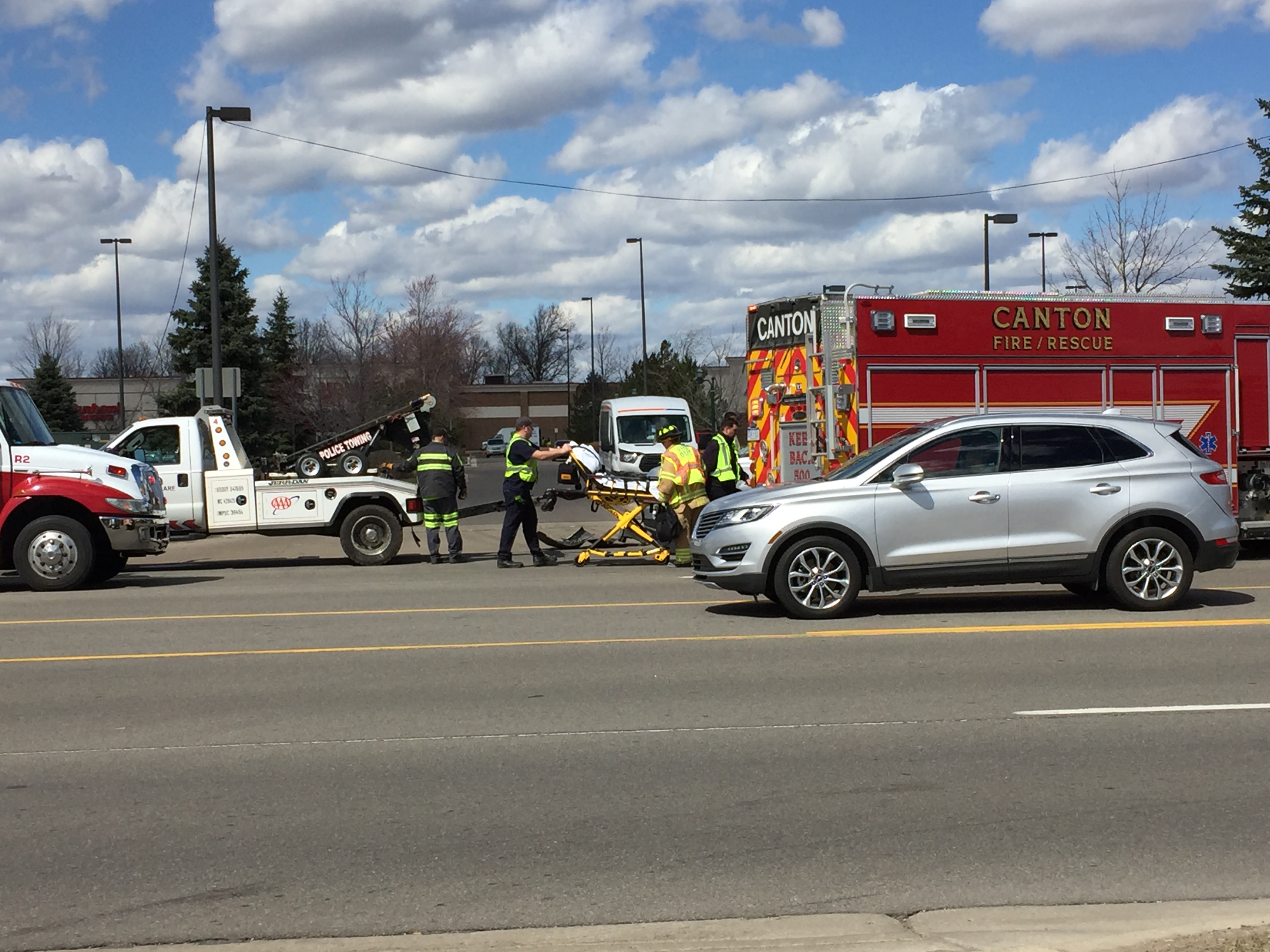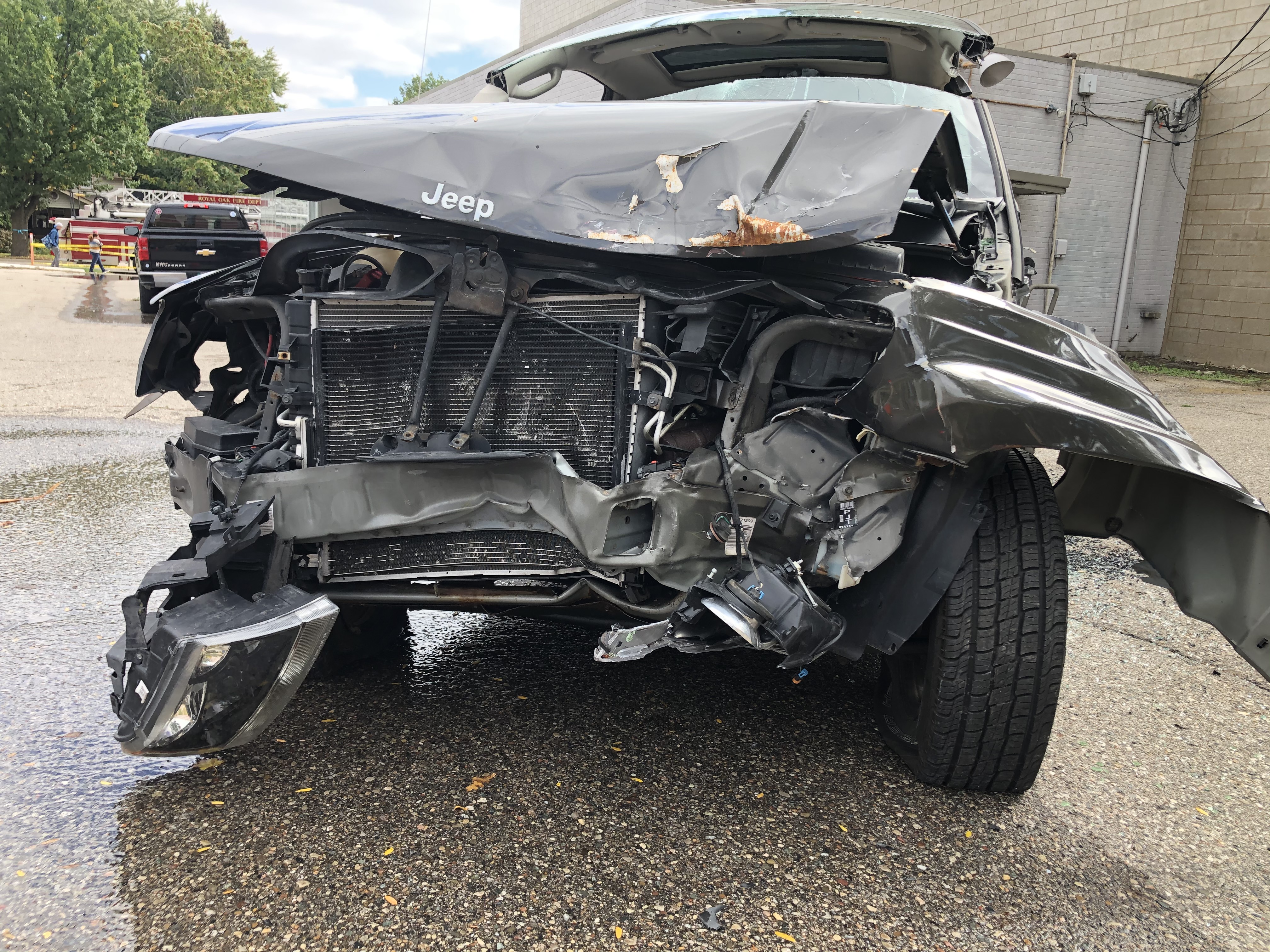The Uninformed Driver’s Guide to Michigan’s Auto Insurance Reform
Michigan’s auto insurance law is set to take effect on July 2. Haven’t been paying attention to the changes? WDET breaks down the big questions around how reform could affect you.

Auto insurance rates in Michigan are the highest in the nation according to a report by carinsurance.com published in February. But if reforms set to take effect July 2 work as intended, that might change.
“Nobody’s coming to help you [with auto insurance reform.] You have to take the initiative yourself.” — Detroit Mayor Mike Duggan
For decades, Michigan was the only state to require that all drivers take out unlimited medical coverage on their car insurance. In a law passed by the state in 2019, Michigan drivers will now have options to lower that coverage.
But none of these changes will happen automatically.
“Nobody’s coming to help you,” said Detroit Mayor Mike Duggan. “You have to take the initiative yourself.”
Listen: WDET’s Laura Herberg found answers to common questions about Michigan’s auto insurance law.
WDET’s Guide to Auto Insurance Reform
Click on a question to jump to that answer, or read the full guide below.
- Why do we need to change how auto insurance works anyway?
- How can I take advantage of auto insurance reform to save money?
- Are there downsides to choosing lower levels of PIP?
- What other changes I should expect to see?
- So no matter what will I save money?
- Will insurance companies charge me more because I live in Detroit?
- So, are these reforms good or bad?
Why do we need to change how auto insurance works anyway?

Part of the reason insurance is so expensive in the state is that about half of the bills goes to paying for one thing: health care.
All Michigan drivers are required to buy medical coverage on their auto insurance in case they get into a car crash. This means people with health insurance essentially pay twice. Michigan isn’t the only state that requires this. A dozen others do too – but as Detroit Mayor Mike Duggan explains in a virtual town hall, the coverage here is unparalleled.
“The only state in America that says all of your medical bills in your car accident have to be paid in your car insurance is Michigan,” said Duggan.
For many in Detroit and surrounding areas, the reality of auto insurance may sound similar to Highland Park’s Darlene Waller.
Waller owns a truck parked right outside her home. The vehicle runs but she doesn’t drive it because she can’t afford to pay the insurance.
“The highest quote I got was $480 a month. The lowest I got was $285 a month,” Waller says.
Eye-popping rates like these have put Michiganders in a bind, forcing some to drive illegally without insurance, or, like Waller, take public transit despite owning a vehicle.
How can I take advantage of auto insurance reform to save money?
The 2019 reform law set into motion several auto insurance reforms. One of them will make it so that Michigan drivers can now choose how much medical coverage they want to pay for on their car insurance bills.
Drivers now will be able to choose from different tiers of Personal Injury Protection, or PIP, which is what covers them right now if they get hurt in an accident. If they want unlimited PIP, they can keep it. Or they can choose to lower the coverage to $500,000 or $250,000.
Drivers on Medicaid can bring their PIP down to $50,000, if they choose.
And, if every member in a driver’s household has Medicare or some other form of qualified healthcare, they can exclude themselves from paying for PIP entirely.
Drivers looking to reduce or eliminate medical coverage on their auto insurance bill will need to fill out a form and provide health insurance documentation. If they make a change, the average consumer will see their Personal Injury Protection rates reduced by 10 to 45 percent, or more if they opt out entirely.
Are there downsides to choosing lower levels of PIP?

Advocates for Michigan’s existing system say unlimited medical coverage has allowed victims of catastrophic accidents to maintain quality of life without worrying about high medical bills.
“Whatever protection you can have, you really, really should make sure you do.” — Detroit Today caller
One Detroit Today caller told host Stephen Henderson about the story of her mother, who was rendered quadriplegic in 2011 after a vehicular accident. In 2019 there were 5,629 crashes in Michigan with serious injuries, according to state data.
“If this injury had happened at any other time, in any other way in any other state, she wouldn’t have been able to enjoy the quality of life that she had when she was still alive,” said the caller. “So I would caution people — I know it’s expensive — whatever protection you can have, you really, really should make sure you do. Because one day things could suddenly change and your entire life’s different.”
Are there other changes I should expect to see?
While many will see these reductions, everyone is going to see another part of their bill rise.
Michigan has “no fault insurance.” It ensures that every driver will have medical coverage if they get in an accident, regardless of who is at fault.
But that doesn’t mean that drivers can’t get sued if someone is seriously injured or if the accident involves out-of-state motorists. Bodily injury insurance helps pick up the tab in these instances.
“The bodily injury liability insurance, it covers claims made against drivers, for injuries to others if they are at fault in an auto accident,” says Erin McDonough, Executive Director of Insurance Alliance of Michigan. “The law does require that the that you have an increase in the amount of bodily injury liability coverage.”
So no matter what will I save money?
Not necessarily.
Officials expect that the average driver should be able to save money with the reforms.
“We were able to determine from the filings that we reviewed that the increase for Bodily Injury and for other non-mandatory coverages would not negate the statewide reductions that we’re going to see on the medical portion of the policy,” said Anita Fox, Director of Insurance and Financial Services for the State of Michigan.
But Fox explained that not every driver is guaranteed to save.
“The way the law is written is in terms of statewide averages,” Fox said.
In other words: insurance companies simply need to show that any required rate reductions impact the average driver, not necessarily every driver.
Will insurance companies charge me more because I live in Detroit?
It depends on your insurer and what the state approves.
Reforms change what the industry can use to determine rates. Education level, occupation, credit score and zip code are among the factors that can no longer be used.
“We really tried to honor the intent of the law to not allow zip code to be a factor.” — Anita Fox, State of Michigan
Some advocates had hoped banning zip codes would make insurance prices fall in Detroit, where residents pay the highest rates in the nation. But as Fox explains, her department still has to allow insurance companies to use geographic areas that aren’t defined by zip codes.
“So we really tried to honor the intent of the law to not allow zip code to be a factor while still allowing territorial rating, if it could be justified,” Fox said.
To justify using the location of a driver’s residence, a company simply needs to show – without using a zip code — that people living in a particular place are a higher risk to insure.
So, are these reforms good or bad?
“Despite the fact that we’re always mad at the politicians, they got something right this time.” — Darlene Waller, resident
Overall, the law, makes some landmark reforms… but because it’s made up of compromises, it isn’t perfect. Yet Highland Parker Darlene Waller says she’s been looking into the statute and she’s optimistic about it.
“We as citizens, we have to realize that legislation takes time,” Waller said. “Despite the fact that we’re always mad at the politicians, they got something right this time.”
Waller is hopeful that when she goes to get a new quote it will be low enough that she can take out an insurance policy on her truck.
Trusted, accurate, up-to-date
WDET is here to keep you informed on essential information, news and resources related to COVID-19.
This is a stressful, insecure time for many. So it’s more important than ever for you, our listeners and readers, who are able to donate to keep supporting WDET’s mission. Please make a gift today.
